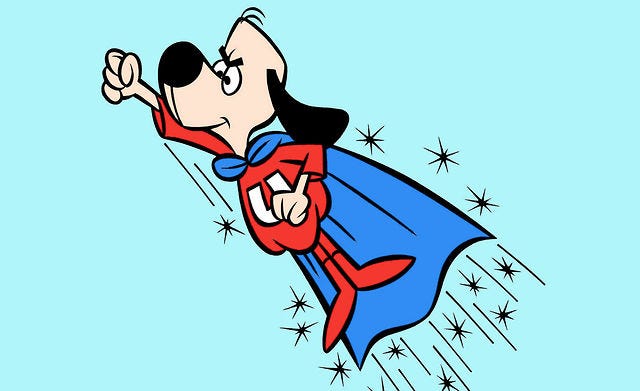If I Have to Keep Hearing "Nobody Believes In Us" I'm Going to Jump Out a Window
professional athletes already have enough incentive to play hard
Last week, and for much of the past season, the Cincinnati Bengals talked endlessly about how disrespected they were. They felt they shouldn’t have been the underdogs against the Bills and were mad that (supposedly) no one respected them as a team. To hear people tell it, these feelings of resentment powered them to victory. Ah, but! Despite enjoying the services of the consensus best player in football and presumptive MVP, and hosting the AFC championship game for the fifth consecutive time, now their upcoming opponents the Chiefs are playing the “nobody believes in us” card, as Patrick Mahomes is injured and the Bengals are slightly favored to win in the betting markets. And this is apparently very, very significant to the course of the game. You see, as the linked video suggests, teams need to feel disrespected to really get motivated to play, and that motivation powers them to win.
I hate this narrative and think everything about it is stupid. First, last season (2021-2022) betting underdogs went 97-175 in terms of wins and losses, so the magic power of being predicted to lose seems pretty limited. And of course we have a long long history of teams winning handily without any added incentive from “nobody believes in us.” The Patriots were the favorites in seven out of their nine Super Bowl appearances and turned that into six championships. The Dallas Cowboys were favored by an average of more than 10 points in their three Super Bowl appearances and cruised to three titles. The San Francisco 49ers were favored in each of their five Super Bowl appearances in the 1980s and 1990s, and they won all five. They were in fact favored by 18.5 against San Diego. Nobody believed in the Chargers! And, it turned out, they shouldn’t have. There’s something sort of tautologically stupid about this narrative - for nobody to believe in a team, they need to be perceived to be a worse team than the team they’re playing against. But it turns out that, while upsets certainly happen, collectively we’re actually consistently good at predicting which team is better, which is unsurprising given how much money is at stake. “Nobody believes in us” is a bet against the collective ability to predict winners in a world where the oddsmakers correctly predict winners two-thirds of the time. Not so smart.
(Like most bad things in sports media, the predominance of “nobody believes in us” can be largely traced to Bill Simmons, though he seems to have moved off of it to some degree.)
What bothers me in particular about this narrative is that it contributes to the widespread, usually evidence-free belief that professional athletes don’t play hard. I will concede that players in leagues with long seasons (baseball, basketball, hockey) will generally reserve more energy in the regular season so that they can play at top ability in the playoffs. But even then, they’re getting up for big games and usually playing at a higher level than people give them credit for. In general pro athletes are playing as hard as they can because they’re immensely competitive people who have direct financial incentive to perform at their highest level. And in the NFL, every game is a big game and careers are very short; the season is just too brief not to play every game like it’s a big game, and you have a week to prepare and get motivated. I promise these guys are playing hard already.
Honestly, it’s all so insulting. Is the idea that the Chiefs would not have played as hard as they could, if they were not now in a position to feel like the underdog? In the AFC championship game? Will the Bengals now not play that hard, in a game that could send them back to the Super Bowl, because they’re favored at most sportsbooks? The whole thing is so absurd. I’m putting money on the Bengals not because I think they’re the disrespected underdog but a) because Patrick Mahomes’s ankle was pointing the wrong way last weekend and b) the Bengals have a better roster than the Chiefs - a better defense and better offensive weapons with a top-three quarterback. Motivation has nothing to do with it; it’s the freaking NFL playoffs. I would really love it if everyone would fall out of love with the “nobody believes in us” narrative.



The narrative is far older than Simmons. You can trace it at least to movies like Major League. I might cite the 1980 USA hockey win as the proto underdog story that launched the popularity of the narrative. Now everyone wants to be the underdog.
I’m reminded of this passage from Elif Batuman’s wonderful novel “The Idiot”:
“I found myself remembering the day in kindergarten when the teachers showed us Dumbo, and I realized for the first time that all the kids in the class, even the bullies, rooted for Dumbo, against Dumbo’s tormentors. Invariably they laughed and cheered, both when Dumbo succeeded and when bad things happened to his enemies. But they’re you, I thought to myself. How did they not know? They didn’t know. It was astounding, an astounding truth. Everyone thought they were Dumbo.”
I feel like these "nobody believes in us" narratives are less about trying hard and more about stoking feelings of teamwork and togetherness. Us against the world. It's undeniably motivating, but I agree with Freddie that these players don't typically need motivation. It's also uniting, which is probably the objective rather than motivation.
I'm sure the fact that it's a juicy media story plays a part.